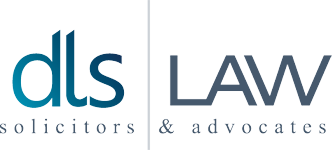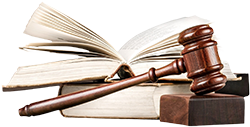When faced with a legal dispute, many people assume that lengthy court proceedings are inevitable. However, alternative dispute resolution (ADR) offers a more efficient, cost-effective way to resolve conflicts without the stress and expense of traditional litigation. Whether you’re dealing with a commercial disagreement, employment issue, or family matter, ADR can provide a pathway to resolution that preserves relationships whilst achieving practical outcomes.
At DLS Law, we’re strong advocates for ADR and always explore these options before turning to court proceedings. In this article, we’ll take a closer look at the question, “What is alternative dispute resolution?” Drawing on over 50 years of experience, we’ll break down the different types of ADR, their key benefits, and how to determine which method is best suited to your situation.
What Is Alternative Dispute Resolution & When Should It Be Used?
Alternative dispute resolution has transformed the legal landscape. In a 2021 audit by CEDR, mediation alone showed an incredibly high settlement rate of 93%, with 72% of these cases being resolved on the day of mediation. This shows that while court proceedings are sometimes necessary, there are often more practical – and more cost-effective – ways to resolve disputes.
With this in mind, if you’re facing legal matters and considering ADR, understanding your options will be crucial for making informed decisions. In this article, we’ll explore:

What Is ADR?
Alternative dispute resolution is designed to resolve legal disputes outside the traditional court system. With several types of ADR available, these processes are more flexible, efficient, and collaborative than litigation, encouraging open communication to find an amicable solution.
ADR is particularly valuable in situations where ongoing relationships matter, such as commercial partnerships, employment disputes, or family matters. In more technical disputes or those involving ,contractual disagreements ADR can also provide specialist knowledge, helping the case to be closed quicker.
In fact, survey by the European Commission published by GOV.UK indicates that businesses using ADR report higher satisfaction rates compared to those pursuing litigation, with 82% of companies stating they would use ADR again for future disputes.
At DLS Law, we always encourage exploring ADR options first as fair negotiations generally achieve a better outcome for all parties involves. However, where this is unsuccessful or inappropriate, our solicitors in Milton Keynes are highly experienced in representing clients through court proceedings.
What Are The Benefits Of ADR?
Alternative dispute resolution offers many benefits, making it a popular choice for individuals and businesses looking to solve a case without traditional litigation; these include:
- Cost-Effectiveness: ADR typically costs significantly less than court proceedings, with as high as an 80% saving compared to full litigation.
- Speed: Most ADR processes can be completed within weeks or months rather than the years often required for court cases.
- Confidentiality: Unlike court proceedings, ADR processes remain private, protecting sensitive business information and personal matters.
- Flexibility: Parties can tailor the process to suit their specific needs and schedules rather than working within rigid court timetables.
- Preservation of Relationships: The collaborative nature of ADR helps maintain professional and personal relationships that might be damaged through court proceedings.
- Control Over Outcome: Parties retain greater influence over the final resolution rather than leaving decisions entirely to a judge.
- Reduced Stress: The less formal, more collaborative approach typically reduces the emotional burden on all parties involved.
- Expertise: Many ADR processes involve specialists with specific knowledge relevant to the dispute, ensuring informed decisions.

Types Of ADR
There are several options when considering alternative dispute resolution, each of which are designed to address different situations. Understanding the types and what they involve will help you to make an informed decision on which method is most likely to help you reach your desired outcome.
What Is Adjudication?
Adjudication is a fast-track dispute resolution process where an independent third party makes a binding decision based on the evidence presented. This method is particularly popular in construction and engineering disputes, where quick resolution is essential to prevent project delays.
The adjudication process typically takes 28 days from start to finish, making it one of the fastest ADR options available. During this period, both parties submit their case to a qualified adjudicator who reviews the evidence and makes a decision that’s immediately binding, though it can be challenged later through arbitration or litigation if necessary.
Adjudication is most suitable for disputes involving technical issues, construction contracts, and situations where cash flow concerns make rapid resolution essential. The benefits include speed, relative simplicity, and the expertise of specialist adjudicators who understand industry-specific issues.
However, because adjudication is a quick process, there is less time to gather detailed evidence, and since the decisions are binding, it can be hard for either party to challenge the result if they’re unhappy with it.

What Is Mediation?
Mediation involves a neutral third party facilitating discussions between disputing parties to help them reach a mutually acceptable solution. Unlike adjudication or arbitration, the mediator doesn’t make binding decisions but guides the conversation towards resolution.
The mediation process typically takes one to three days, depending on the complexity of the dispute. Sessions are usually held in comfortable, neutral venues where parties can engage in open dialogue with their legal representatives present. The mediator helps identify common ground and explores creative solutions that might not be available through traditional litigation.
Mediation works particularly well for commercial disputes, employment issues, and family matters where ongoing relationships are important. It’s especially effective when parties want to maintain control over the outcome and are willing to engage in good faith negotiations.
The benefits of mediation include its collaborative nature, complete confidentiality, and the ability to craft solutions that address underlying interests rather than just legal positions. Success rates are high, with most mediations resulting in settlement, and the process costs significantly less than court proceedings.
What Is Arbitration?
Arbitration is a more formal ADR process where disputes are resolved by one or more arbitrators who make binding decisions after considering evidence and arguments from both sides. It’s essentially a private court system that offers many of the benefits of litigation whilst maintaining the efficiency and confidentiality of ADR.
The arbitration process typically takes no more than 45 days from the arbitrator closing the proceedings. Unlike court proceedings, parties can choose their arbitrator based on relevant expertise, and the process can be tailored to suit the specific nature of the dispute.
Arbitration is particularly suitable for complex commercial disputes, international transactions, and cases involving technical or industry-specific issues. It’s also commonly used when contracts contain arbitration clauses requiring disputes to be resolved through this method.
The key benefits include the expertise of chosen arbitrators, enforceability of awards, and greater procedural flexibility than court proceedings. However, arbitration can be more expensive than other ADR methods, and there’s limited scope for appealing decisions.

What Is Expert Determination?
Expert determination involves appointing a technical or professional specialist to make a binding decision on a particular aspect of a dispute. It is most commonly used for more complex cases such as those involving technical, financial, or professional matters such as professional negligence claims and contractual interpretation. It’s also effective for resolving specific issues within larger disputes, allowing other matters to be addressed through different ADR methods.
Depending on the complexity of the case, the process typically takes 2-6 months and during this time, the expert will review documentation, conduct site visits or interviews, and provide a detailed determination that’s binding on all parties.
The benefits include the expert’s specialist knowledge, relatively quick resolution, and detailed reasoned decisions that address technical aspects comprehensively. Our dispute resolution lawyers in Milton Keynes often recommend expert determination when cases involve complex technical or professional issues that require specialist insight.

Resolving Disputes With Confidence Through DLS Law
Alternative dispute resolution offers a practical, efficient way to resolve conflicts whilst preserving relationships and controlling costs. Whether you’re facing a commercial disagreement, employment issue, or any other legal dispute, understanding your ADR options allows you to make informed decisions about the best path forward.
At DLS Law, we pride ourselves on delivering a very personal yet highly professional service that combines the expertise of city-class lawyers with the approachability of a local practice. Our experienced team has successfully resolved disputes across all ADR methods, enabling us to provide pragmatic advice tailored to your specific circumstances and desired outcomes.
If you’re facing a dispute and want to explore your resolution options, contact our experienced team at DLS Law today. We will happily discuss how we can help you achieve a practical, cost-effective resolution that protects your interests and preserves relationships.


